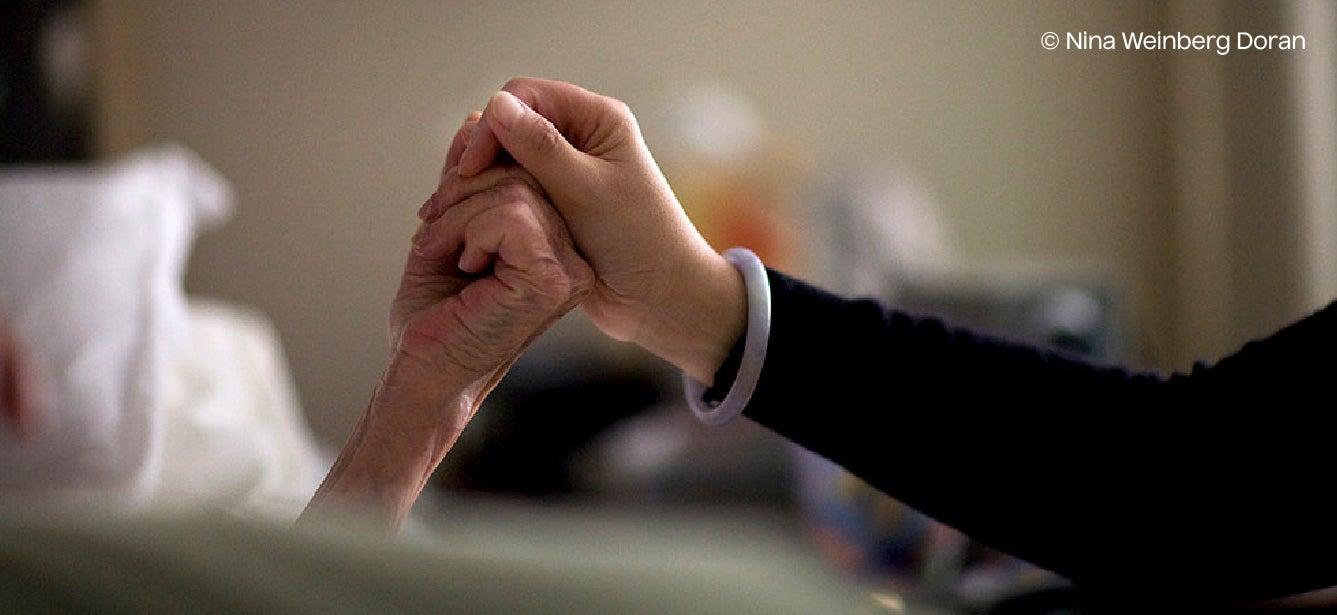
Related Topics
The holidays are an amazing and very special time, but they can also be immensely stressful. Finances may be stretched due to extra expenses or less work, not to mention all the impacts that COVID has had on family budgets.
There’s also a whole host of expectations.
To be honest, expectations are often the main culprit in caregiver holiday stress. Sometimes it’s our own expectations that are tripping us up, as we’re trying to reach targets that were never realistic.
Many of us want to create the perfect day or days, giving our family members a holiday that they’ll love—especially if they’re not going to be around for much longer. Yet, doing so can be incredibly difficult.
Thankfully, you can take some steps that will make everything much easier.
1. Keep it simple
Simplicity is under-rated, doubly so during the holidays. It’s too easy to forget that the most special moments often aren’t the ones that aren’t complicated at all.
In fact, one of my most special Christmases was a year where my partner and I decided to ditch all the expectations of a big family event and stay home, just the two of us. I didn’t cook a roast or anything complicated. Instead, most of our Christmas day meals relied on cold cuts, cheese, bread, and treats.
I’ve had many more complicated Christmases, including those that involved dressing up, the whole family, a special meal, and more. Honestly, though, nothing beats that one Christmas where everything was gentle and relaxed.
As a caregiver, keeping things simple may be even more important. After all, your time and energy are limited. If you’re worried about every last detail or trying to complete a million things, you’re likely to end up stressed and exhausted, which isn’t fun for anyone.
Some ways to make things simpler:
- Limit gifts to one per person or agree as a family to skip gift giving altogether.
- Don’t be afraid to say no. Seriously. Rather than agreeing to every event or request, choose the ones that are most important to you.
- Put away the devices and the music and spend some time reading books or perhaps playing a board game. It’s amazing how relaxing a little peace and quiet can be.
2. Limit the input
While older adults often love large family events, many find them incredibly difficult instead. There’s just so much input from every direction, which can get exhausting fast.
People with cognitive difficulties might face additional challenges. Some may not be able to fully understand what’s happening, especially if there are many people involved.
Once again, simple is better.
If the older adult lives with you, why not consider having people visit in groups, rather than all at once? You could even spread the event over a few days.
3. Plan early and well
Planning ahead often makes all the difference. For example, if you plan your meals, you can gather all the ingredients at the same time, rather than having to go back to the store because you’ve forgotten something.
My family often starts with rough lists that then get refined as we get closer to the holidays. Those lists often end up including notes about who’s going to do what and bring what food (so we don’t end up with a dozen desserts and no main courses on Christmas day).
Think too about any potential issues that might arise.
For example, if you’re traveling with an older adult, you might need to think about incontinence during long car trips or any confusion from being in an unfamiliar environment.
What about family drama?
While planning for drama might sound strange, you can lay some ground rules before the event and think about how you’ll respond if problems do arise. Thinking about this ahead of time makes it easy to respond well, rather than getting stressed and overwhelmed.
Don't do too much
It’s easy to take on much more responsibility than you need to, especially when you’re a caregiver.
I still do this myself, thinking that I need to be the one to solve every crisis and plan for every event. Yet, this isn’t true at all. There are plenty of other people in your family and social circle, ones that can take on some responsibility too.
This might mean that you need to ask people to step up and make it clear that you’re not doing everything.
And, if they’re not willing to put in the effort, that’s one more reason to keep things simple. Why should you be the only one stressing and trying to get everything done?
5. Don't worry if it goes wrong
If things go wrong, even horribly wrong, it’s okay. Truly.
Close your eyes, take a few deep breaths, and remember that Christmas is just another day. It’s the little moments of connection that people remember much more than anything else, so focus on those.
6. Don't forget about you
There’s one other critical thing about the dealing with caregiver holiday stress: self-care. This term doesn’t just mean taking care of your own needs (like food and rest). It also refers to supporting your mental and emotional health.
However, before you start running through one of the many self-care lists, take the time to think about what you really need right now:
- For example, the most important thing might be to decrease your workload. To find ways to take things off your plate and rest more for awhile.
- Perhaps you need some time away from everything. That’s not the easiest thing to pull off during the holidays, but you might be able to carve out a few non-interrupted hours for yourself.
- Sometimes you just need another person to talk to, whether for advice or just venting. Online therapy is a surprisingly useful approach here, as you can connect with a therapist from the comfort of your own home.
- Mindfulness practices and meditation apps can be helpful too, making it easier to cope with whatever is happening in your life.
For more ideas, check out our post on The Secret to Self-Care. In it, we highlight an uncommon approach to self-care, one that involves looking closely at your needs, from the perspective of some of Tony Robbins’ work.



